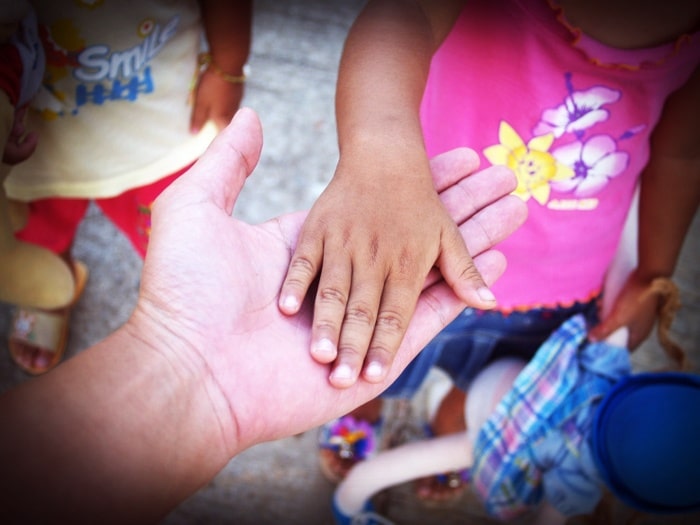
Want to avoid the cold and flu this holiday season? In addition to getting your rest, eating well, and exercising daily, try this:
do something nice for someone else.
Indeed, acts of kindness have been found to help boost the immune system! But that’s not all. Find out how being kind not only helps others but can improve your health in many ways.
1. Kindness Boosts Your Immune System
When you perform a kindness for someone else, it can help reduce the stress you’re feeling, and stress depletes the immune system. Reducing stress through kindness, therefore, helps your immune system operate as it should.
Even watching an act of kindness can help. In one study out of Harvard University, researchers showed volunteers a video of Mother Theresa carrying out acts of kindness. After the video was over, those who had watched it showed a boost in their immune systems.
2. Kindness is a Natural Antidepressant
Feeling a little down? Instead of staying away from others, try extending a helping hand instead. In a 2018 study, researchers found that participants who either engaged in a loving-kindness meditation (where they focused on compassionate thoughts for others) or in an actual act of kindness reported significant reductions in depression than those who didn’t.
3. Kindness Gives You Energy
Skip the Red Bull and get someone else a coffee or snack instead. The action will help produce feel-good endorphins in the brain, which creates energy. In a Berkeley study, nearly 50 percent of participants said they felt stronger and had more energy after helping others.
4. Kindness Promotes Cardiovascular Health
Cardiovascular disease remains the number-one killer of both men and women in the United States. We’re all trying to eat well, exercise, and maintain a healthy weight, but you can do more for your heart by making someone else happy.
The key is when you do something nice or even watch someone else do something nice, levels of the hormone oxytocin rise in your body. Also called the “love hormone,” it helps lower blood pressure and improves overall heart health.
5. Kindness May Delay the Appearance of Aging
Want a new beauty tip? Be kind to other people. That oxytocin we talked about in #4—it also helps reduce damaging free radicals and inflammation, which are two of the biggest factors in aging.
Inflammation, stress, and free radicals all work to destroy collagen and elastin, creating sagging, bagging, and wrinkles. Oxytocin can help protect you and keep your skin looking its best. On top of that, researchers have found that when we’re kind to others, we’re also more likely to be kind to ourselves, which means we’ll take better care of ourselves.
6. Kindness Makes You Happier
Many of us are pursuing happiness. We want to live happy, productive lives. Kindness can help us do that. In one study involving people from over 130 countries, researchers found that altruistic people—who gave to charities, for example—were happiest overall.
7. Kindness May Help You Live Longer
Volunteering is one way you can show kindness. In one study of people aged 55 and older who volunteered for two or more organizations, results showed that they had a 44 percent lower likelihood of dying early as those who didn’t volunteer.
In another study, researchers looked at data for more than 500 people between the ages of 70 and 103. They found that grandparents who watched their grandchildren and older adults who helped their adult children were more likely to be alive 10 years later than those who didn’t help care for another person. Even those who cared for someone outside of their family still experienced longevity benefits.
Ideas for Acts of Kindness
Convinced that you’re ready to perform some acts of kindness today, but not sure what to do? We have some ideas for you:
- Help an elderly neighbor or family member with a household chore, such as cooking, cleaning, or shoveling snow.
- Take a homemade treat to someone who doesn’t expect it.
- Leave a thank-you note for someone who provided you with good service.
- Drop off a few inexpensive goods to your local homeless shelter.
- Take a toy or game to kids in need at the hospital.
- Pay the tab for someone behind you.
- Leave your server a generous tip.
- Donate to your favorite charity.
- Babysit for a single parent.
- Give out a sincere compliment.
- Send an “I’m thinking about you” card.
- Help a teacher get supplies for his or her classroom.
- Share your talents where they’re needed—play piano for the nursing home residents, teach a child to paint, or help a senior operate his or her computer.
Do you have ideas for simple acts of kindness?
Sources
Carter, C. L. (2010, February 19). What We Get When We Give. Retrieved from https://www.psychologytoday.com/us/blog/raising-happiness/201002/what-we-get-when-we-give
Hamilton, D. (2018, July 24). Can kindness boost the immune system? Retrieved from https://drdavidhamilton.com/can-kindness-boost-the-immune-system/
Make Kindness The Norm. (n.d.). Retrieved from https://www.randomactsofkindness.org/the-science-of-kindness
Mongrain, M., Barnes, C., Barnhart, R., & Zalan, L. B. (2018). Acts of kindness reduce depression in individuals low on agreeableness. Translational Issues in Psychological Science, 4(3), 323-334. doi:10.1037/tps0000168
Sifferlin, A. (2016, December 27). Be Nice, Because People Who Care for Others Live Longer. Retrieved from https://time.com/4618363/longevity-care-grandparents-research/

